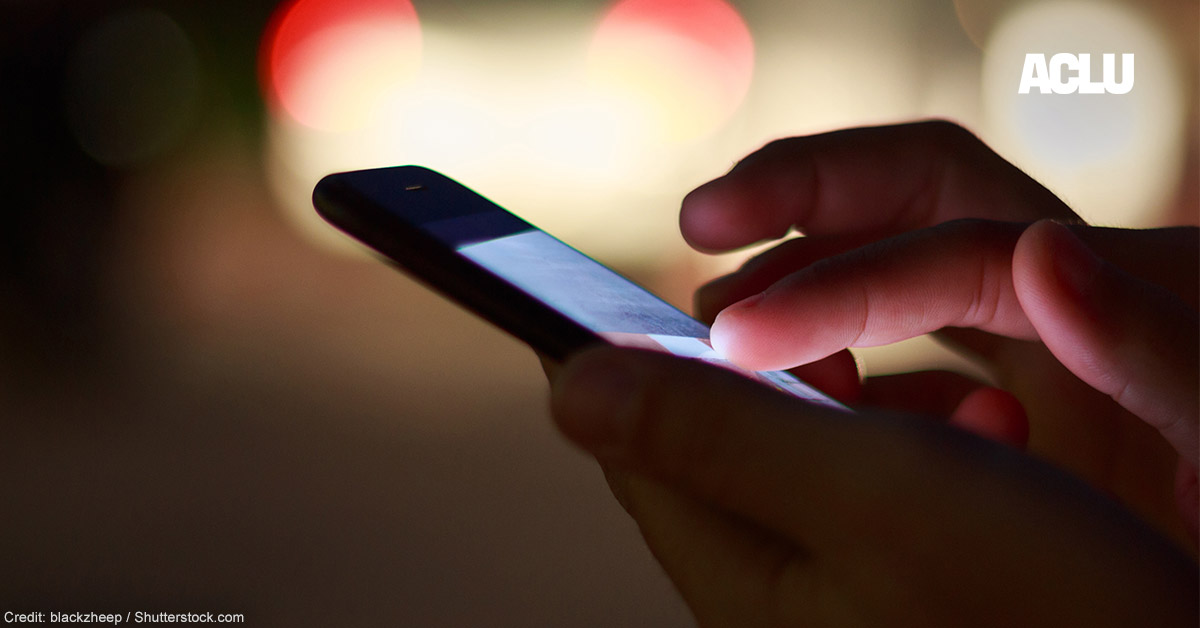
United States v. Hunt
What's at Stake
This case concerns whether a warrant is required to search the information stored on a cell phone when the device itself may be properly deemed “abandoned.”
Summary
This case squarely presents the question whether police must obtain a warrant before searching the contents of a cell phone when the physical device itself may properly be deemed “abandoned.” In a friend-of-the-court brief filed by the ACLU, the ACLU of Oregon, the Electronic Frontier Foundation (“EFF”), the Electronic Privacy Information Center (“EPIC”), and the National Association of Criminal Defense Lawyers (“NACDL”), we argue that the answer is “yes.”
In 2017, Oregon police seized an iPhone that they found on the ground at the scene of a shooting. Police did not know to whom the phone belonged, but they did know the identity of the shooting victim. They placed the phone in an evidence locker until, nearly three years later in 2020, investigators with the Drug Enforcement Administration obtained a warrant to search the phone’s contents as part of an independent investigation involving the shooting victim. They found incriminating evidence, and Hunt, the victim of the 2017 shooting, became a defendant in this case.
Hunt moved to suppress evidence obtained through the 2020 search of the iPhone, arguing that the 768-day gap between that event and the initial seizure of the device rendered the search unreasonable in violation of the Fourth Amendment, as courts have held in other cases involving substantial delays between the seizure and subsequent searches of digital data. The district court denied Hunt’s motion. Relevant to the ACLU’s submission in the case, the district court held that that because the phone was “abandoned,” Hunt had no reasonable expectation of privacy in the data stored on it, and thus lacked standing to challenge the search in the first instance.
The ACLU’s brief, filed in the U.S. Court of Appeals for the Ninth Circuit, addresses this argument. It argues that distinguishing between searches of the data stored on digital devices like cell phones and searches of the physical devices themselves mean the warrant requirement must apply to searches of the information on even an “abandoned” phone. This is because cell phones are capable of storing such vast quantities of diverse and revealing information that they implicate categorically different privacy considerations from those at stake in past cases concerning searches of abandoned physical property. of those so-called “abandonment” cases was decided well before cell phones integrated into daily life, and was based on the holding that people lack an expectation of privacy in items, like curbside trash, that they knowingly and voluntarily leave out amenable to public inspection.
But while a person arguably evinces some intent to give up their privacy interest in the physical device when they leave behind a cell phone, their relationship to the data stored on the phone is different. For one, the information on a cell phone is so comprehensive and revealing, and cell phones are so easily lost, that they cannot be properly analogized to other kinds of property. Relatedly, because so much of the data on a phone will often reside also on the cloud and be accessible by other means, a cell phone user does not actually lose or give up their information – even when they are separated from their device.
Mr. Hunt’s appeal is currently pending.
Legal Documents
-
United States Court of Appeals for the Ninth Circuit
Press Releases
ACLU Urges Ninth Circuit to Protect Privacy of Data on Cell Phones
